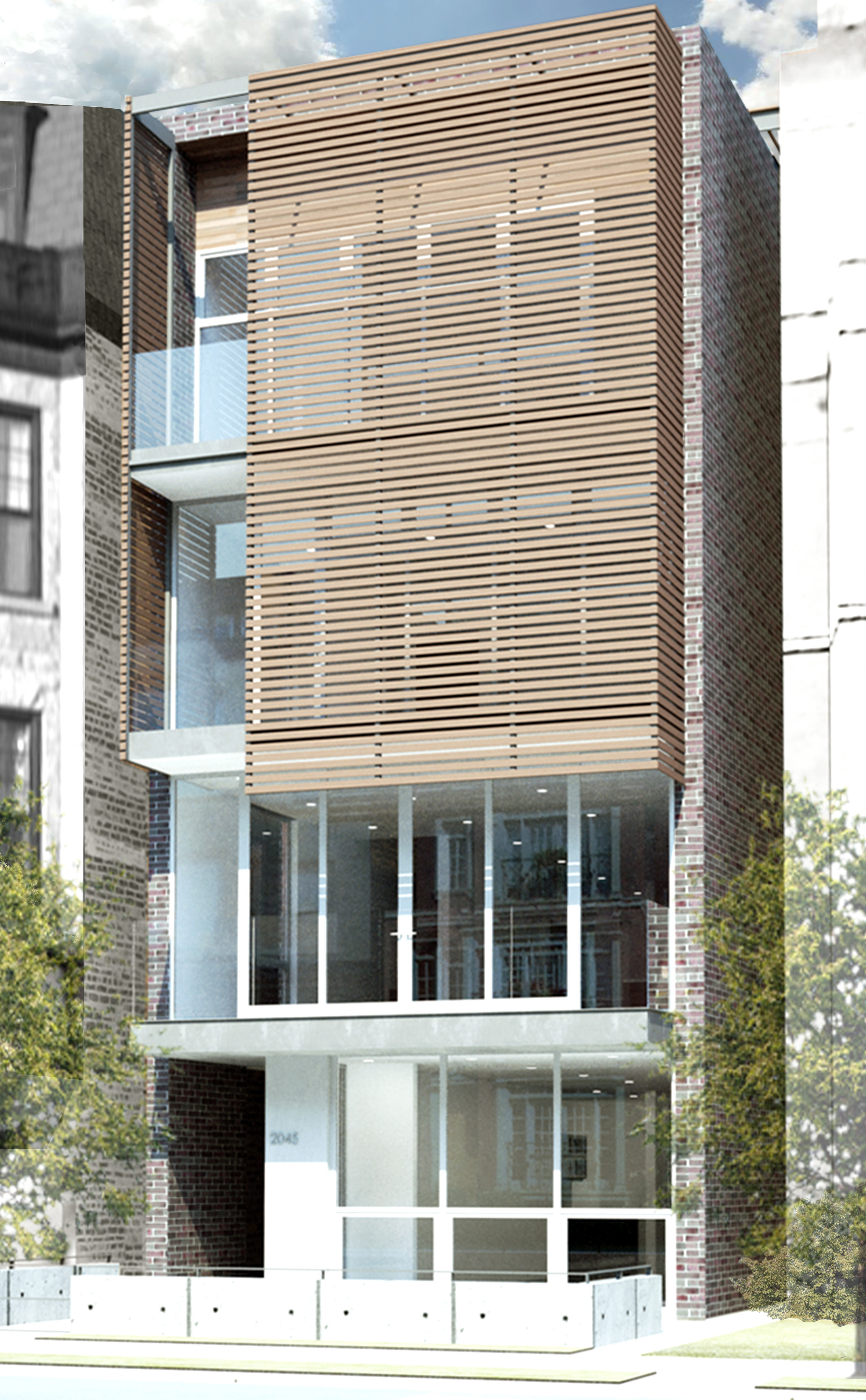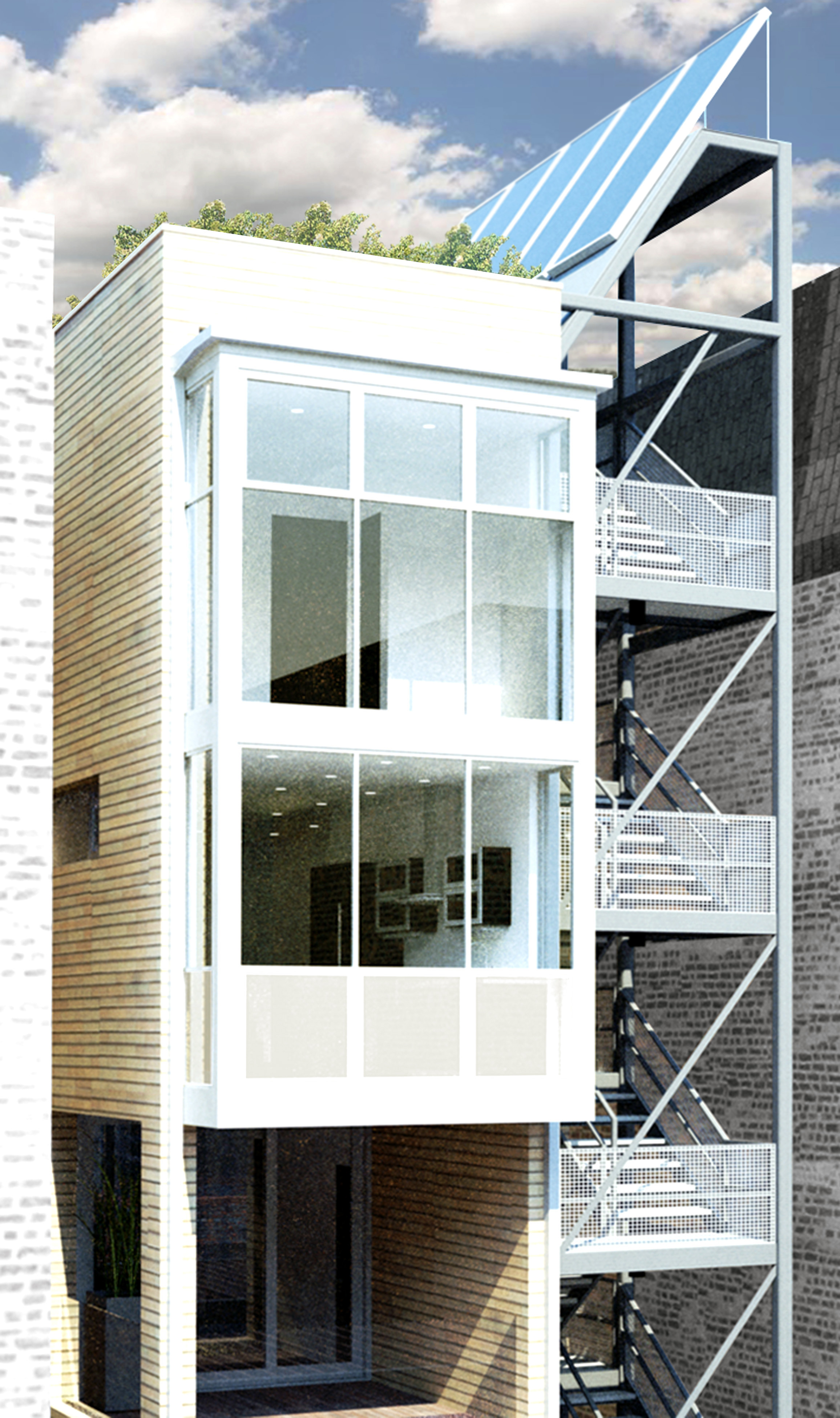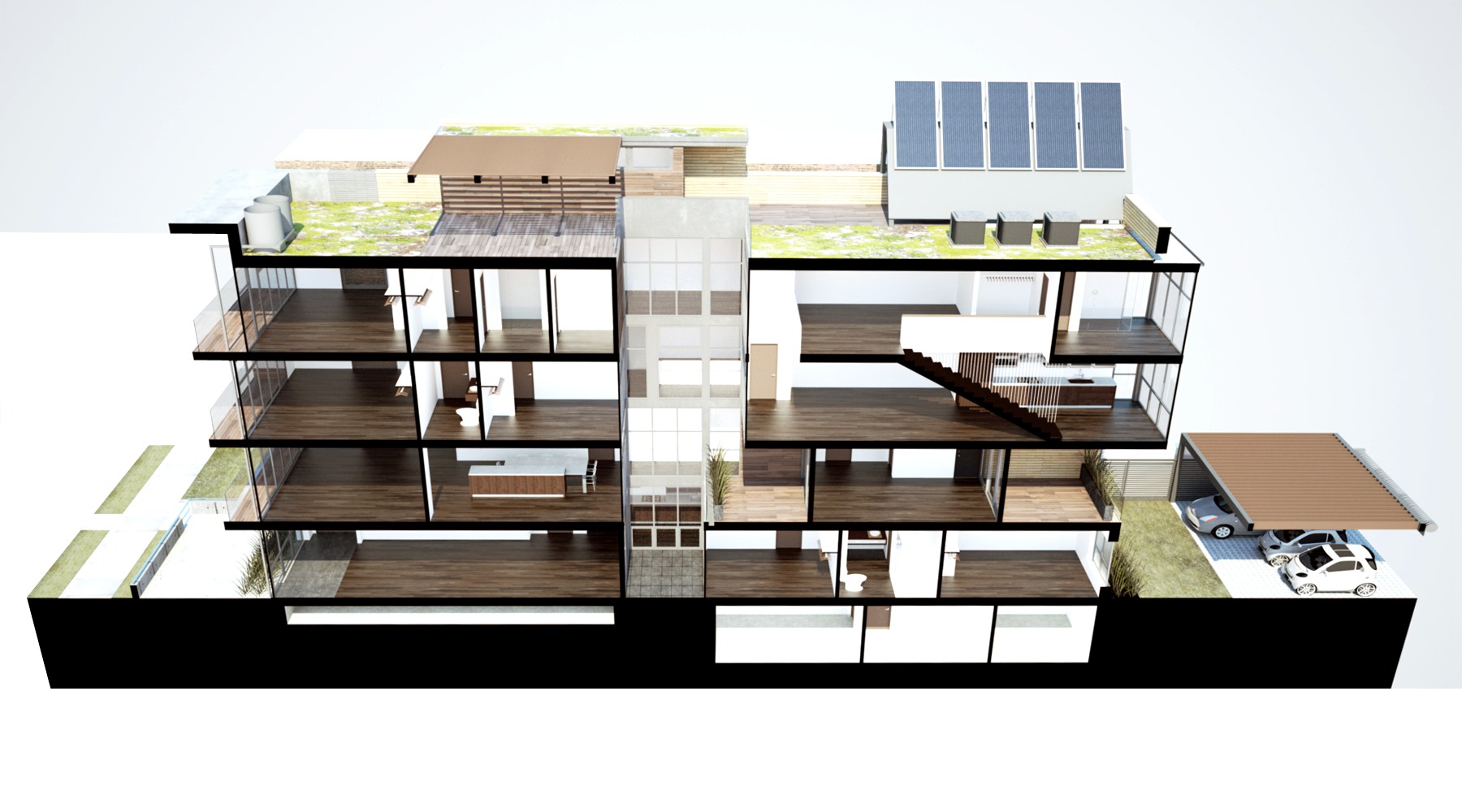

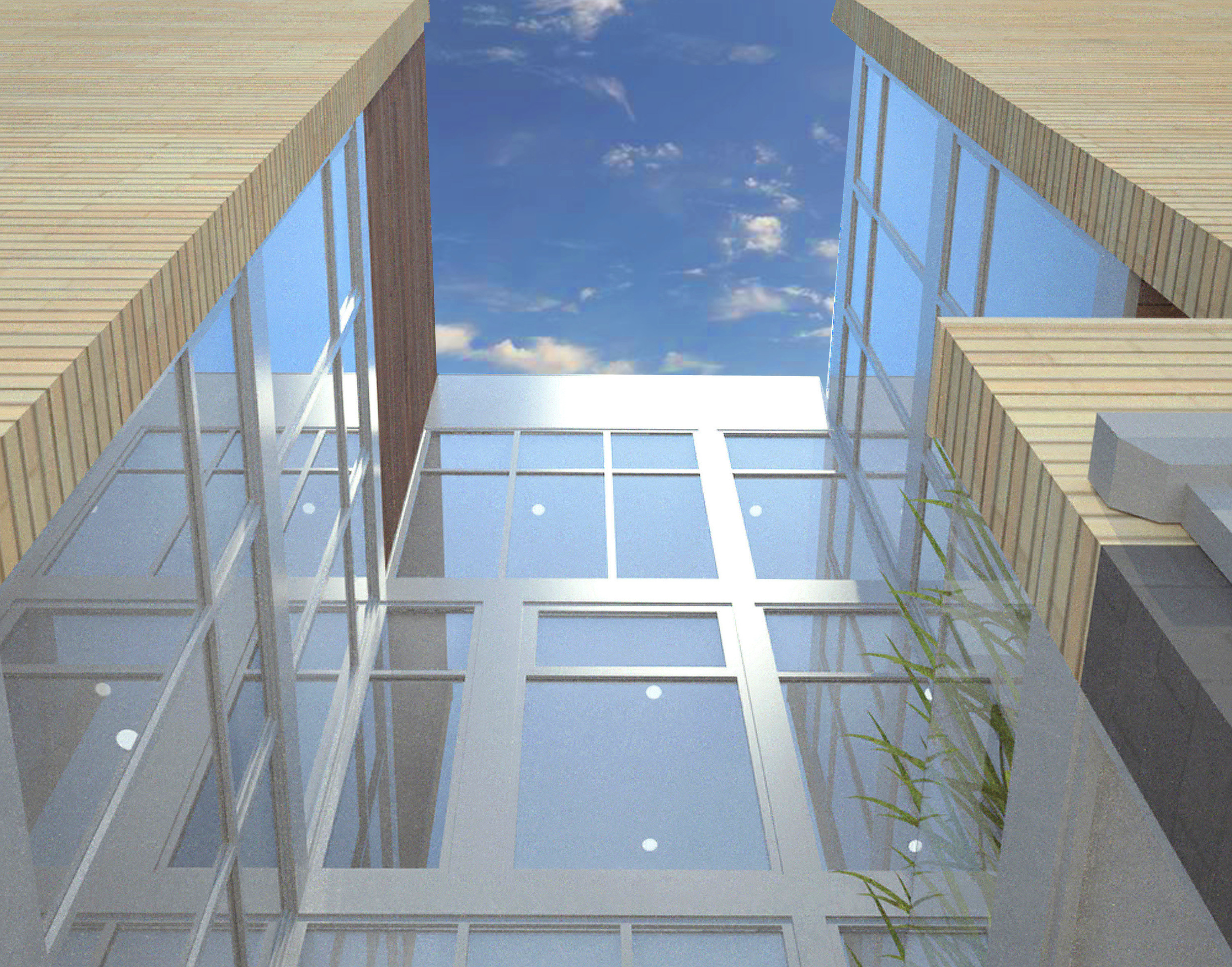

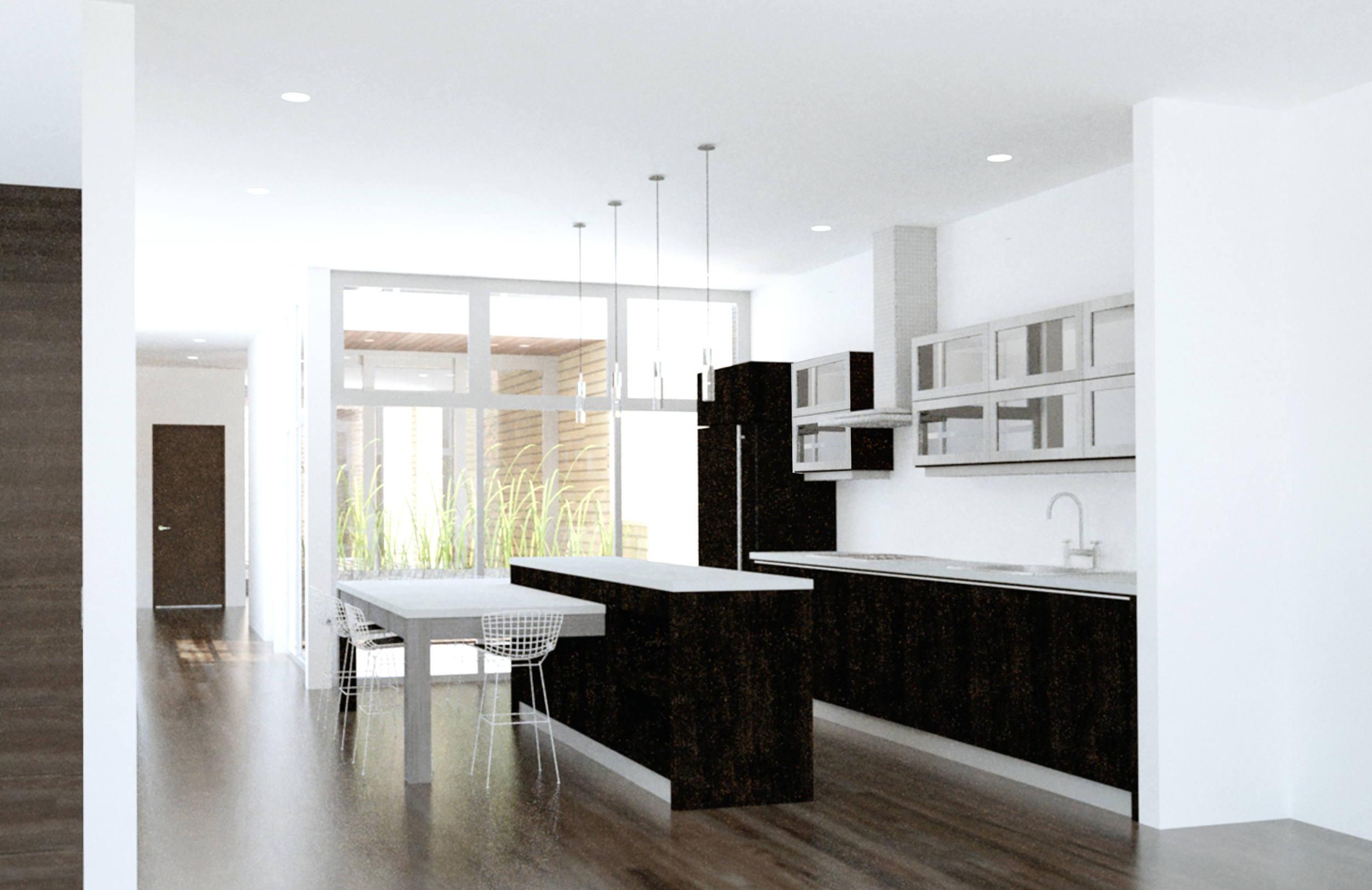

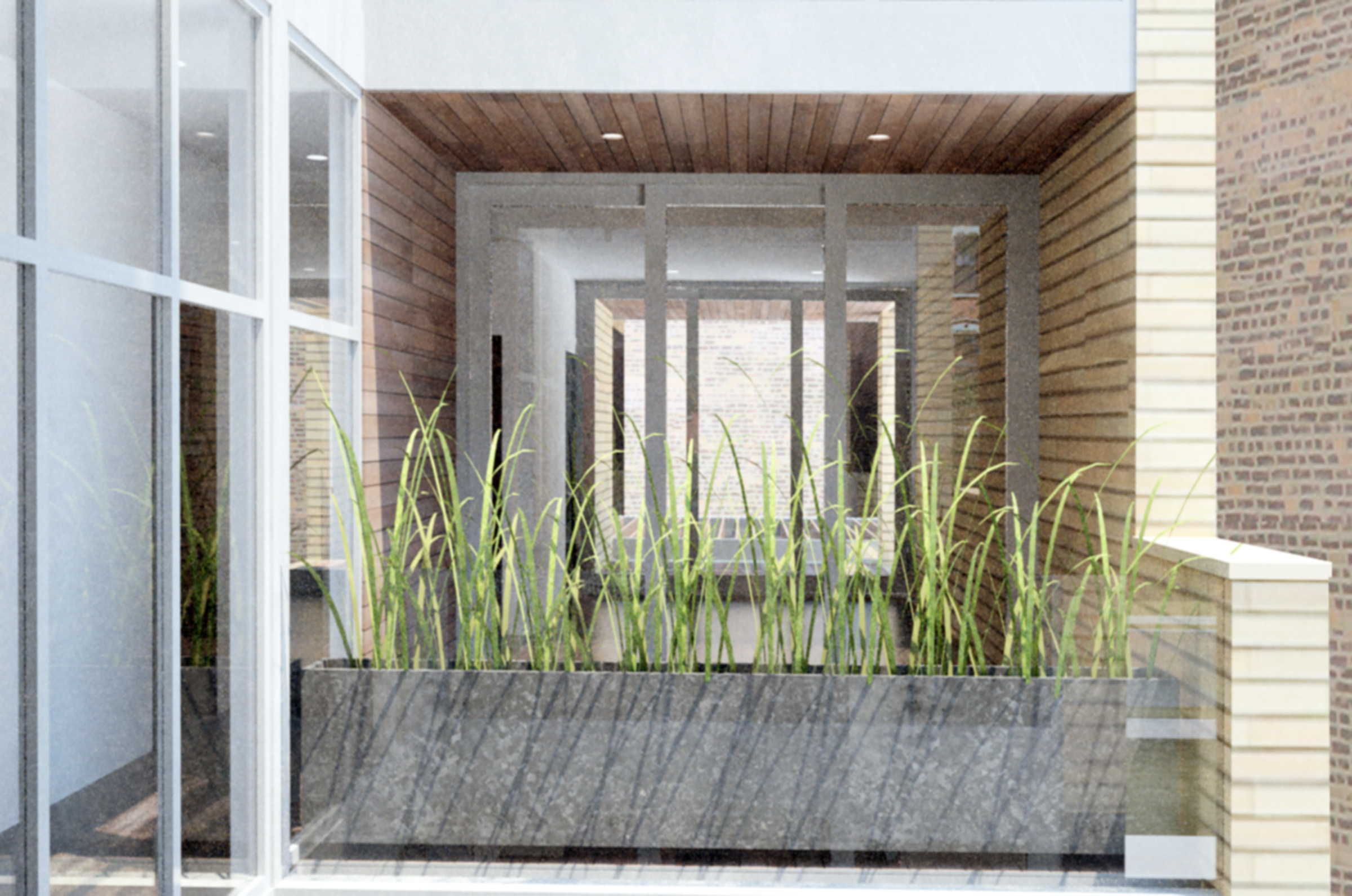

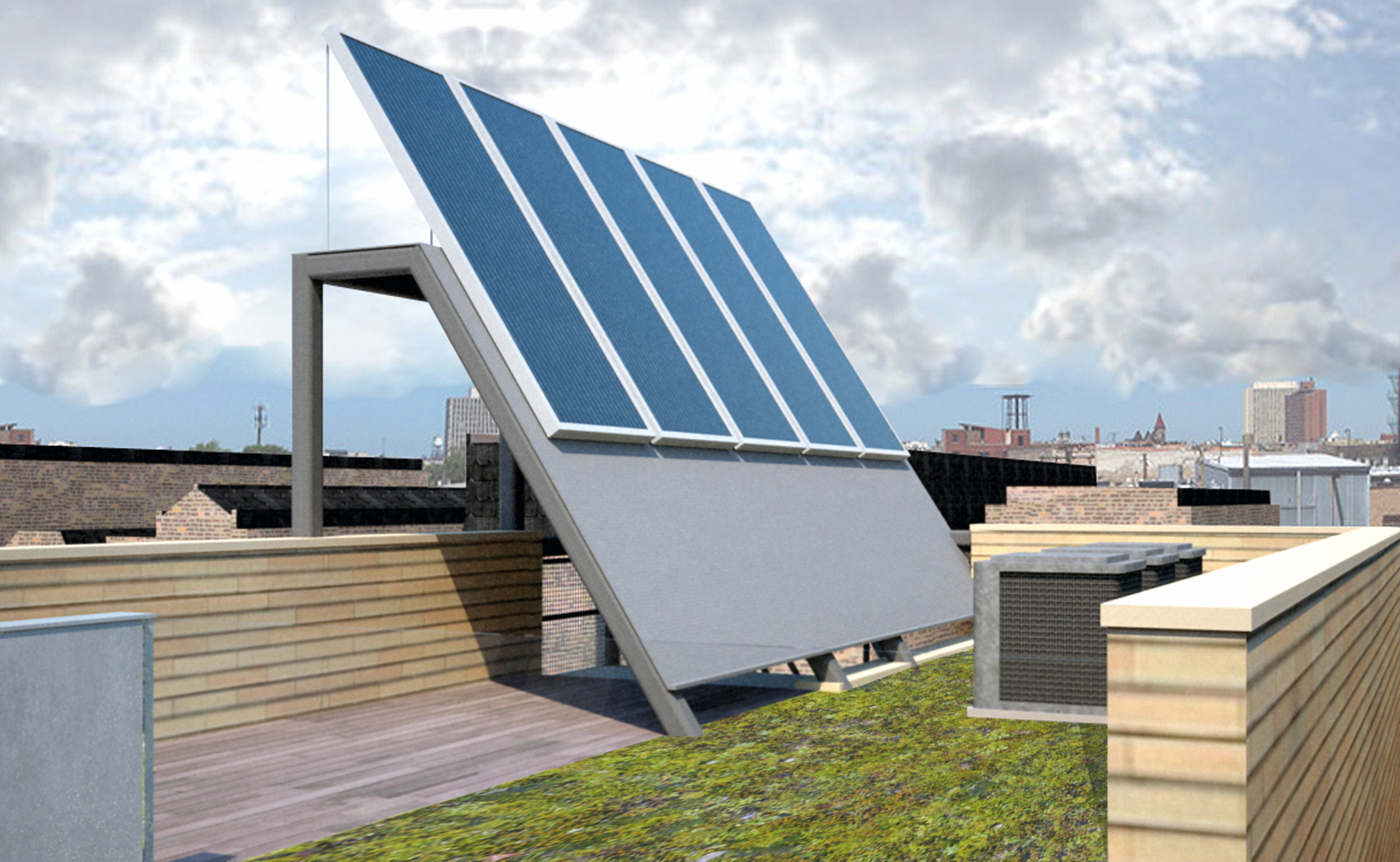
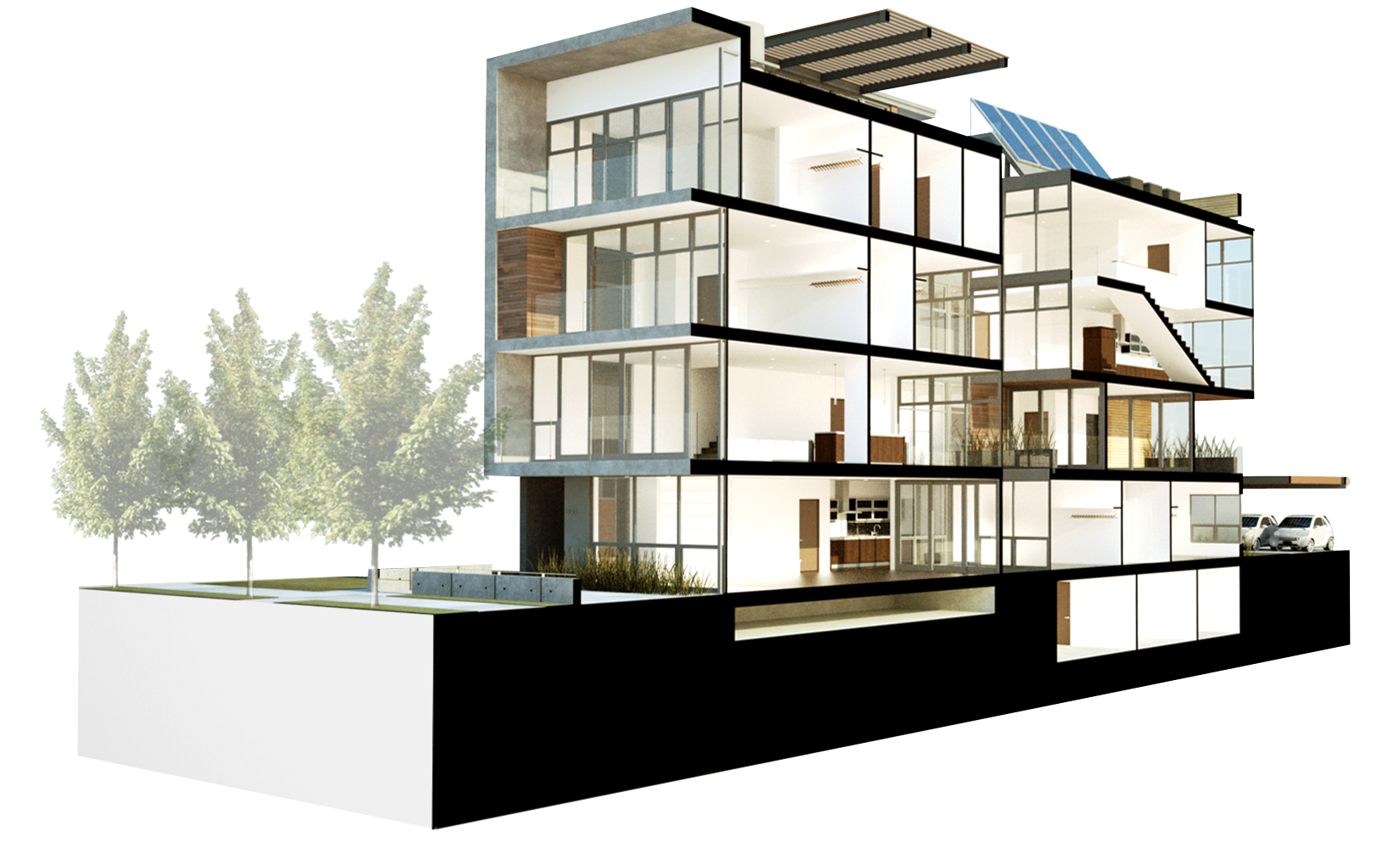
Generation(s) is a prototype sustainable multi-unit residential project to be built on a standard 25 x 125 lot in the City of Chicago. Our approach to the problem was to address both social, and sustainability issues in a more specific way. This three unit project is built to accommodate 3 generations of a single family with a heirarchy of units that respond to the needs of the members within each generation.
The accessible ground floor unit which would accommodate an elderly person or couple. This unit would have access to a landscaped courtyard is barrier free
Our philosophy of creating timeless environments that enhance lives at home and work inherently aligns with the principles of sustainable building. As architects, our sustainability goal is to reduce impact on the natural environment while providing healthy and distinctive built environments. Achieving this goal requires a careful and often complex balancing act of the client’s needs, sustainability goals, budget constraints, code/ordinance requirements, and site conditions.
We believe that environmental sustainability requires lifestyle commitments and cannot truly be achieved by simply adding “environmentally friendly” or “green” elements to a project. The commitment to low impact design and living must be an integral part of project planning from the onset. Our ideal approach to the sustainable design process includes early and consistent consideration of a broad range of interdependent objectives:
Site Stewardship – Responsible site development decisions and careful management of construction activities
Appropriate Materials Use – Minimizing waste in the design and construction of the building, reducing use of materials, appropriately sizing the building, and specifying responsibly-produced materials
Regional Responsiveness – Consideration of local climate conditions, use of regionally sensitive products and technologies, and integration with existing infrastructure/ transportation
Energy Efficiency – Reducing the building’s energy requirements involving everything from the HVAC system and orientation of the building to the structural assemblies and selection of fixtures & appliances
Water Efficiency – Efficient design of the plumbing systems and selection of efficient fixtures
Optimal Indoor Environment – Optimizing the quality of interior air, light, and temperature including consideration of building orientation, HVAC system, and materials selections
Residential Architecture
Generation(s)
Type: Multi-Family Residential
Status: Designed 2008
Location: Chicago, Illinois
Project Team
Peter Nicholas
Jacob Wahler
Janeen Harrell
Lane Fowlie
Ann Clark

